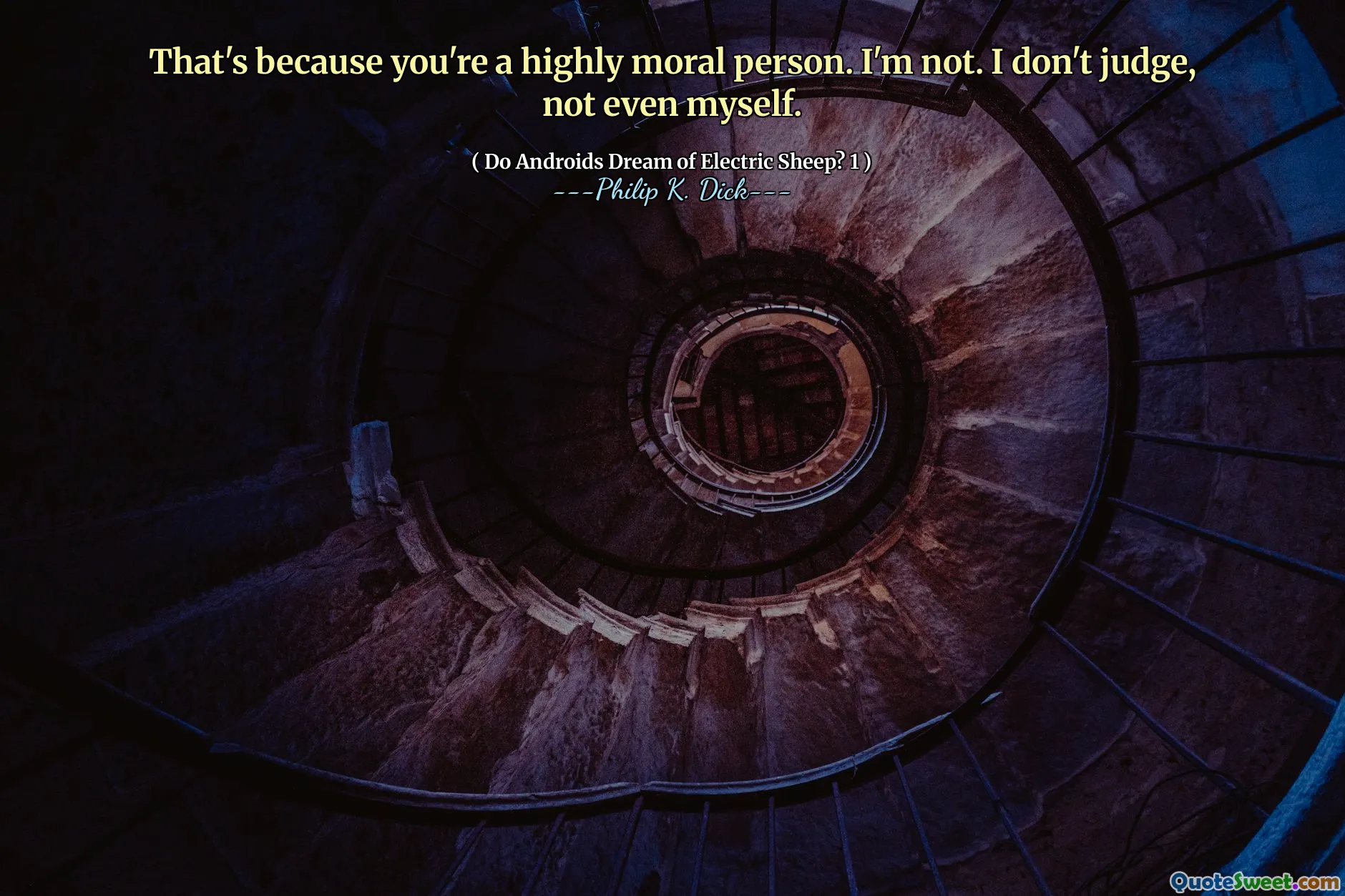
That's because you're a highly moral person. I'm not. I don't judge, not even myself.
In "Do Androids Dream of Electric Sheep?" by Philip K. Dick, the concept of morality is explored through the contrasting perspectives of different characters. One character asserts that their moral compass is strong, while another claims to lack judgment for themselves or others. This highlights the complexity of moral values and the subjective nature of right and wrong in the story’s dystopian setting. The dialogue reflects a deeper philosophical inquiry into what it means to be moral in a world where humanity itself is questioned. The lack of self-judgment suggests a freedom from the constraints of societal norms, allowing for exploration of identity and existence without the burden of guilt or righteousness.
In "Do Androids Dream of Electric Sheep?" by Philip K. Dick, the concept of morality is explored through the contrasting perspectives of different characters. One character asserts that their moral compass is strong, while another claims to lack judgment for themselves or others. This highlights the complexity of moral values and the subjective nature of right and wrong in the story’s dystopian setting.
The dialogue reflects a deeper philosophical inquiry into what it means to be moral in a world where humanity itself is questioned. The lack of self-judgment suggests a freedom from the constraints of societal norms, allowing for exploration of identity and existence without the burden of guilt or righteousness.
